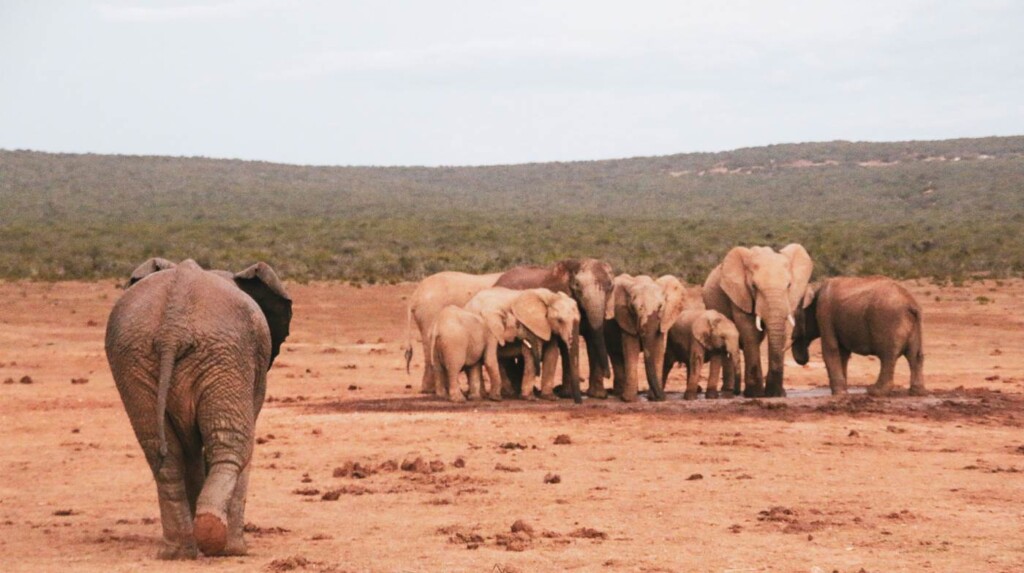 credit – Glen Carrie, Unsplash
credit – Glen Carrie, UnsplashIn a study as amazing as it is probably unsurprising, a team of biologists and researchers using machine learning tools discovered that elephants call each other by names.
For an animal that is known to perform deeply social acts like grieving, raising children collectively, and communicating across miles of countryside using complex low-frequency vocalizations, the use of names seems to be natural for their societies, but being able to know an elephant’s name in ‘Elephantese’ offers the potential to dramatically reduce human-elephant conflict.
The study was conducted at Colorado State University and was organized around simple observations that the matriarch of an elephant herd the researchers were following in Kenya would use a call that brought all the elephants together around her.
However, sometimes a perfectly similar call would draw only a single elephant out of the group.
To investigate if this had something to do with a naming custom, the scientists from CSU, Save the Elephants, and ElephantVoices used machine learning to analyze and group vocalizations into those they suspected were meant for multiple members of the herd, and those meant for an individual.
When the researchers played recorded calls, CSU press reports, elephants responded affirmatively to calls that were addressed to them by calling back or approaching the speaker. Calls meant for other elephants received less of a reaction.
In animal vocal ethnology, using a name is considered an “arbitrary communication” says study co-author George Wittemyer, a professor at CSU’s Warner College of Natural Resources and chairman of the scientific board of Save the Elephants, which means a sound that represents an idea but doesn’t imitate it.
“If all we could do was make noises that sounded like what we were talking about, it would vastly limit our ability to communicate,” said Wittemyer.
What arbitrary means in this case is that the sound made when a name is called could be absolutely anything—it’s just something to be assigned to a thing or a person, and is believed to indicate thought abstraction, a sign of higher intelligence.
In the evolutionary past of both humans and elephants, complex social frameworks demanded precision communication.
“It’s probably a case where we have similar pressures, largely from complex social interactions,” Wittemyer said. “That’s one of the exciting things about this study, it gives us some insight into possible drivers of why we evolved these abilities.”
Kurt Fristrup, a research scientist in CSU’s Walter Scott, Jr. College of Engineering, is also excited about the findings because they present the opportunity to understand what kinds of acoustic features are used in elephant communication as “descriptors” of herd members.
“Our finding that elephants are not simply mimicking the sound associated with the individual they are calling was the most intriguing,” Fristrup said. “The capacity to utilize arbitrary sonic labels for other individuals suggests that other kinds of labels or descriptors may exist in elephant calls.”
Lastly, Wittemyer believes that developing a rudimentary address book of all the elephants in a given region would allow for unprecedented opportunities to manage human-elephant conflicts, as the individual animals in the study consistently responded with great acuity to the sounds of their names.
“It’s tough to live with elephants, when you’re trying to share a landscape and they’re eating crops,” Wittemyer said. “I’d like to be able to warn them, ‘Do not come here. You’re going to be killed if you come here.’”In April, scientists were confident they had a conversation with a humpback whale, suggesting humanity may be on the cusp of entering an age of conversational capacity with animals who share our world. Elephants Are the First Non-Human Animals Now Known to Use Names, AI Research Shows
